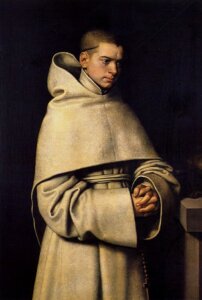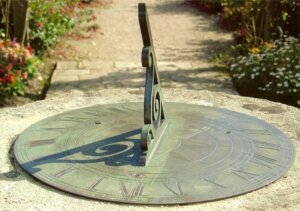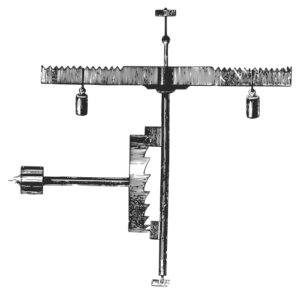In my last blog post, the science fiction one, I considered how to tell time outside Earth. Another situation is time in the medieval period, and indeed any period before then. How did they measure time before clocks? This Huffpost article was really helpful.
Ordinary people had no need for detailed time keeping, but worked on sunrise and sunset. In my book Swansea Miracle, witnesses were asked by the papal commission, for example, how long they watched the hangings or how far away they were. The answers were given with reference to other things: a bowshot, or as far as a man could walk between Tierce and Sext (see below).
 The people who needed more accurate times were the monks. The Liturgy of the Hours required them to gather and pray seven times a day. These were:
The people who needed more accurate times were the monks. The Liturgy of the Hours required them to gather and pray seven times a day. These were:
Larger monasteries and the chapter houses of cathedrals would have rung bells to summon the community to these prayers, and peasants and farmers living nearby would have had their day divided up by the ringing of these bells.
 These monastic communities would have kept track of the time before clocks to summon the monks to these prayers by various means: well-trained body clocks from years of practice, water clocks, sundials, and the use of an astrolabe or quadrant to take readings from the sun or stars to calculate the time.
These monastic communities would have kept track of the time before clocks to summon the monks to these prayers by various means: well-trained body clocks from years of practice, water clocks, sundials, and the use of an astrolabe or quadrant to take readings from the sun or stars to calculate the time.
 Experiments with gearing systems and weights resulted in the invention of the first clocks, some time in the latter thirteenth century. By the mid-fourteenth century most towns had at least one clock. Employers could regulate working hours and craftsmen could charge for their work by the hour.
Experiments with gearing systems and weights resulted in the invention of the first clocks, some time in the latter thirteenth century. By the mid-fourteenth century most towns had at least one clock. Employers could regulate working hours and craftsmen could charge for their work by the hour.
 Ann Marie Thomas is the author of five medieval history books, a surprisingly cheerful poetry collection about her 2010 stroke, and the science fiction series Flight of the Kestrel, Intruders, Alien Secrets & Crisis of Conscience are out now. Follow her at http://eepurl.com/bbOsyz
Ann Marie Thomas is the author of five medieval history books, a surprisingly cheerful poetry collection about her 2010 stroke, and the science fiction series Flight of the Kestrel, Intruders, Alien Secrets & Crisis of Conscience are out now. Follow her at http://eepurl.com/bbOsyz